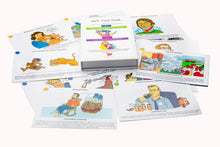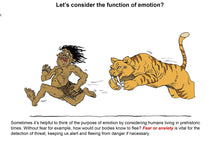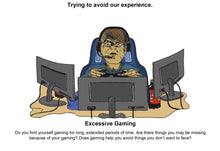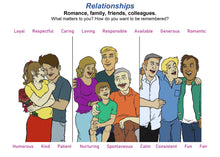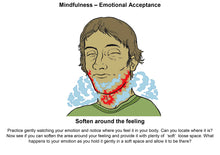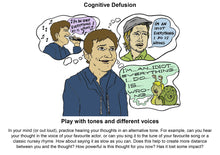
ACT Tool Deck - Part 1 and Part 2 is a set of colorful, vibrant cue cards designed to provide practical self-help strategies that are based on principles founded within an Acceptance and Commitment Therapy (ACT) framework. ACT is an evidence-based intervention used to assist in the treatment of numerous mental health concerns including depression, anxiety and stress. It uses strategies such as mindfulness to help us accept and manage painful emotions, enabling us to live a rich, value-driven, meaningful life.
Part 1 of the ACT Tool Deck series outlines important theoretical foundations of ACT. It helps users to understand the importance of accepting our emotions and how avoidance can lead to suffering. In addition, it assists us to understand the function of emotions and how emotions are designed to guide our behaviour. It is the perfect introduction to help users understand the origins of their emotional distress and prepares them to seek alternative ways of managing painful emotions.
Part 2 of the ACT Tool Deck helps users identify important personal values. It also demonstrates strategies such as mindfulness (which is useful in accepting and managing painful emotions) and cognitive defusion (which can be helpful when we feel 'bogged down' by unhelpful patterns of thinking).
Included within this deck (a total of 56 A5 Cue Cards):
- Learning that feeling a range of emotions is normal and healthy (we can't simply be happy ALL the time).
- Understanding emotions and their function
- Sadness
- Happiness
- Anger
- Fear
- Disgust
- Drive
- What is experiential avoidance and identifying different ways people avoid their emotions.
- What happens when we continue to try and avoid uncomfortable emotions.
- Getting ready to take action
- Deciding to live a value-driven life
- Know what matters to you (your values)
- Grounding strategies
- Cognitive defusion
- Emotional acceptance and mindfulness
- Committed Action and goal setting
This tool kit is appropriate for not only children and teens but works wonderfully well with adults who are visual learners too!






